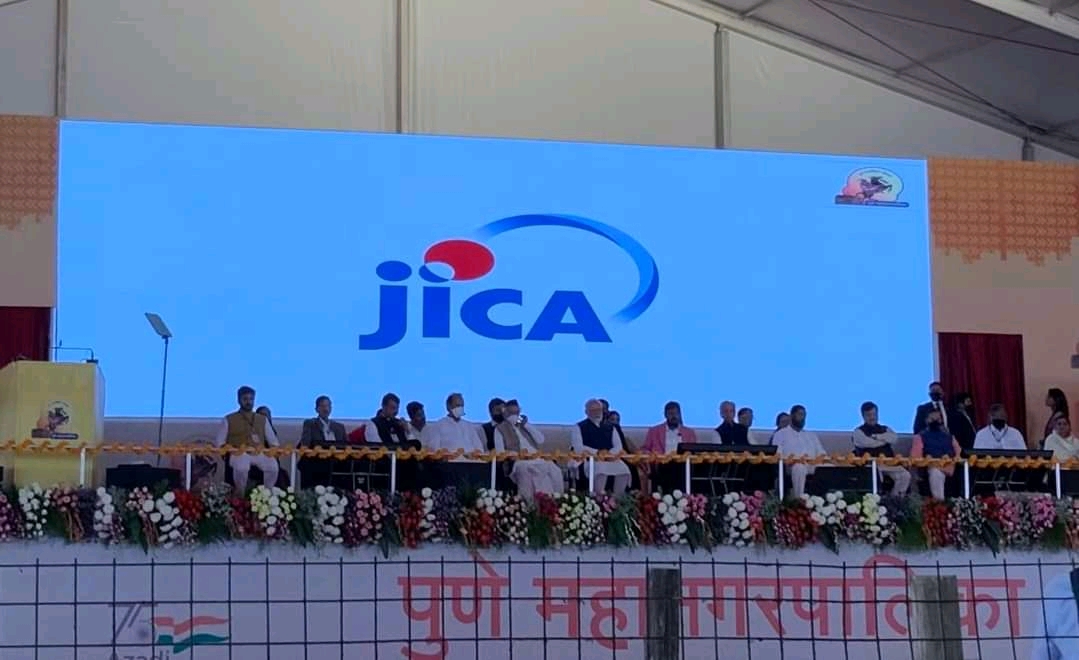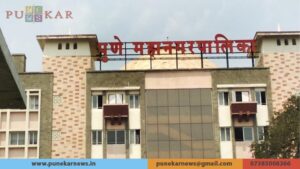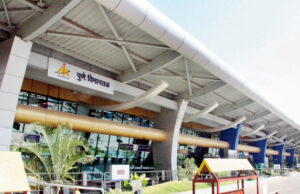Prime Minister Narendra Modi Inaugurates JICA’s Project On Pollution Abatement Of Mula-Mutha Rivers In Pune

Pune, 6th March 2022: The Prime Minister of India, Narendra Modi, today lauded the inauguration of the Project for Pollution Abatement of Rivers Mula-Mutha in Pune, funded by Japanese ODA Loan, at a ceremony organized by the Pune Municipal Corporation (PMC).
He was joined by representatives of the Government of Japan including H.E. SUZUKI Satoshi, Ambassador of Japan to India; and SAITO Mitsunori, Chief Representative, Japan International Cooperation Agency (JICA) India Office.
The objective of the project is to improve the water quality in the three rivers in Pune by augmenting sewage collection systems and sewage treatment facilities in the PMC area. It also includes taking other measures required for the pollution abatement and thereby improving the sanitation and living conditions of people who reside in Pune city and in the watershed of the downstream area.
The project was provided with a loan of approx. Rs 1270 crores (approx. 19,064 million yen). The ceremony marked the awarding of a large procurement package for this project, which includes most of the project scope such as 11 Sewerage treatment Plants (STP) with 396 Million Liters per Day (MLD) treatment capacity in total, Intermediate Pump Stations and Main/Sub-main and Branch sewers, to a joint venture comprised with Enviro Control Pvt. Ltd., an Indian company, and Toshiba Water Solutions Pvt. Ltd., a Japanese company.
Speaking on this occasion, H.E. Satoshi SUZUKI, Ambassador, Embassy of Japan in India, said, “India-Japan relationship is at its zenith now. This has been made possible by the strong leadership of Honorable Prime Minister Modi, together with recent Japanese prime ministers. Our bilateral partnership as well as our collaboration has been widening and deepening day by day. Today, with the commencement of the “Project for Pollution Abatement of Rivers Mula-Mutha in Pune,” supported by JICA, we are witnessing the future of India-Japan relations unfold in front of us. I would like to extend my congratulations to the Prime Minister and the people of Pune for this significant project, which will contribute to significantly improving the public health of the city. This year 2022 marks the 75th anniversary of the independence of India as well as the 70th anniversary of the establishment of India-Japan diplomatic relations. It gives me great pleasure to witness the strengthening of our bilateral relationship through the remarkable project in Pune is such a commemorative year.”
Speaking on this occasion, SAITO Mitsunori, Chief Representative, JICA India, said, “JICA is pleased to help enhance the beauty of Pune City. I know that the city of Pune is famous for its wide range of educational institutions and its people have strong sympathies with Japan as it is one of the cities where many people study Japanese. I am glad to attend the inauguration ceremony of the project which aims to support sewerage development to prevent water contamination in the major rivers, reduce public sanitation challenges, and improve life quality in the city of Pune. Since the major component of this project has been awarded to a Joint Venture entity composed by Japanese company and Indian company, I expect this inauguration will contribute to the strengthening of the Japan-India relationship through improving the river water quality and the quality of the life in the region. “
Pune generated 728 MLD of sewage in 2014, while the total sewage volume treated at the existing STPs was estimated at only 476 MLD. Thus, 252 MLD of sewage was being discharged directly into three major rivers, Mula, Mutha, and the Mula-Mutha, causing severe pollution. These rivers were classified as one of the 35 most polluted rivers in India by the Central Pollution Control Board (CPCB). These rivers flow into the Bhima River, whose water is made potable downstream. The pollution results in the worsening hygienic condition of the city and pose great health risks to its citizen. Therefore, the development of an integrated sewerage system is imperative for improving the sanitation, hygiene and living condition of the citizens.





